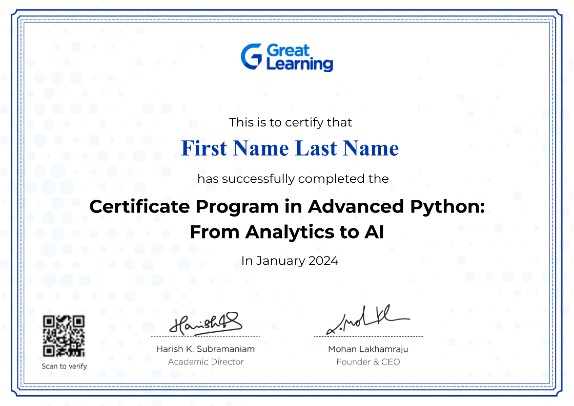About this Program
In this 16-week program, you will excel in developing streamlined MLOps pipelines for automated data analytics. Leverage the power of Generative AI capabilities to craft highly efficient Python code through a sequence of prompts. Gain expertise in vector similarity search and adeptly build Generative AI workflows. Elevate your skills to develop the seamless integration of cutting-edge technologies in the field.
What makes this program unique
-

What you’ll learn
Python for end-to-end MLOps, encompassing data understanding, manipulation, visualization, automation, Generative AI, LLMs, and vector similarity search in building efficient data science pipelines
-

Build MLOps pipelines and GenAI workflows
Design and build an end-to-end MLOps pipeline in a production environment. Build Generative AI workflows for business use cases using tools like OpenAI, Hugging Face and Langchain.
-

Work on projects and case studies
Immerse yourself in 12+ real-world case studies and 3 hands-on projects on Market Analysis, Insurance Charge Prediction and Creation of an RAG Solution.
-

Learn from industry experts
Gain practical knowledge in Python, Prompt Engineering, and Generative AI from skilled industry experts
Skills you will gain
- Python
- MLOps
- Prompt Engineering
- Exploratory Data Analysis
- Generative AI
- Vector Databases
- Retrieval Augmented Generation (RAG)
Tools you will learn
- Matplotlib
- Seaborn
- Gradio
- OpenAI
- Hugging Face
- LangChain









.jpeg)

.jpeg)

.jpeg)
 (1).jpg)





